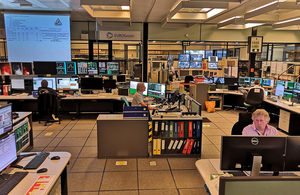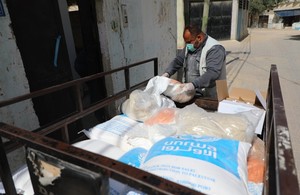Boost for commercial analogue radio stations
News story
Listeners of popular radio stations such as Classic FM and TalkSport will be able to access their favourite analogue shows for another ten years thanks to new government plans.

Media Minister John Whittingdale has today set out how commercial radio will be licensed over the next decade so that listeners can continue to enjoy their stations of choice despite rapid changes in technology and radio listening.
Nearly 60 per cent of all radio listening is now via digital devices, but analogue stations remain an important platform for millions of listeners who still tune into FM and AM radio services every day.
Several FM and AM commercial radio licences are due to expire from early 2022.
Provided the stations also broadcast on digital radio, the government has decided to allow Ofcom to renew these analogue licences for a further ten-year period.
Minister for Media and Data John Whittingdale said:
As we move into an increasingly digital world we’re making sure the licensing landscape for radio is fair and up-to-date and allows audiences to enjoy a wide range of high-quality stations.
Today’s step ensures there is no disruption for loyal listeners of treasured FM and AM radio services such as Classic FM, Absolute Radio and TalkSport over the next decade.
We will soon be turning our attention to providing similar long-term certainty to support the future growth of digital radio.
The government’s decision follows extensive consultation with industry and clarifies the long-term licensing arrangements for FM and AM radio services in the light of the shift to digital listening.
It will help support further investment and innovation in DAB but also provides certainty to commercial radio as it seeks to manage the financial impact of coronavirus.
The legislation to amend the Broadcasting Act 1990 to enable Ofcom to renew these licences will be laid in parliament shortly.
Following the decision on analogue licenses, the Government will now consider the position of DAB multiplex licences. Multiplexes consist of a number of digital radio stations transmitted on a single frequency, which is a more efficient method of transmission than analogue radio’s individual frequencies.
Government will consult on changes to extend national and local digital radio multiplex licences by the end of 2020, in order to help futureproof the radio industry’s wider licensing structure.
ENDS
Notes to editors:
- The Government has today published the response to a public consultation on extending analogue commercial radio broadcasting licences which ran from December 2019 to February 2020 and sought views on whether these licences should be renewed, and if so how long for. Read the consultation response.
- Analogue (FM or AM) commercial radio licences are issued by Ofcom under powers granted to them by section 86 of the Broadcasting Act 1990. Such a licence permits a commercial radio station to broadcast to a specific licensed geographic area (known as the measured coverage area) in accordance with a specified format (e.g. mainly speech-related requirements, such as news) for a set period of time.
- Since the mid 1990s, the analogue licences of stations that also provide a service in digital form (in practice, either via digital audio broadcasting (DAB) or its successor technology, DAB+) have benefited from an entitlement to claim a series of renewals, in accordance with amendments made to the Broadcasting Act 1990 by the Broadcasting Act 1996, the Communications Act 2003, the Digital Economy Act 2010 and the Legislative Reform (Further Renewal of Radio Licences) Order 2015.
- A number of licences, including national analogue licences for Classic FM and TalkSport, have used up their renewals and were due to expire from early 2022. Ofcom now has the power to renew these licences for a further period. The changes only affect analogue commercial radio services. Digital radio and community radio are subject to different licensing arrangements.
- DAB radio services are broadcast as multiplexes. A radio multiplex consists of a number of DAB radio stations bundled together to be transmitted digitally on a single frequency in a given geographic area. This makes it a more efficient way of transmitting sound signals compared to analogue radio, where stations are broadcast on individual frequencies.
- The first national multiplex licence for commercial radio expires in 2023 and the shift in listening to digital (more than 58% of all radio listening is now digital) means it is time for the Government to consider the licensing arrangements for DAB multiplexes.
- The Broadcasting (Radio Multiplex Services) Act 2017 gives the DCMS Secretary of State a power to modify (through secondary legislation) the various procedures to create Small Scale Radio services. Ofcom has recently launched details of their plans to start licensing small scale radio later this year.
Published 2 July 2020



